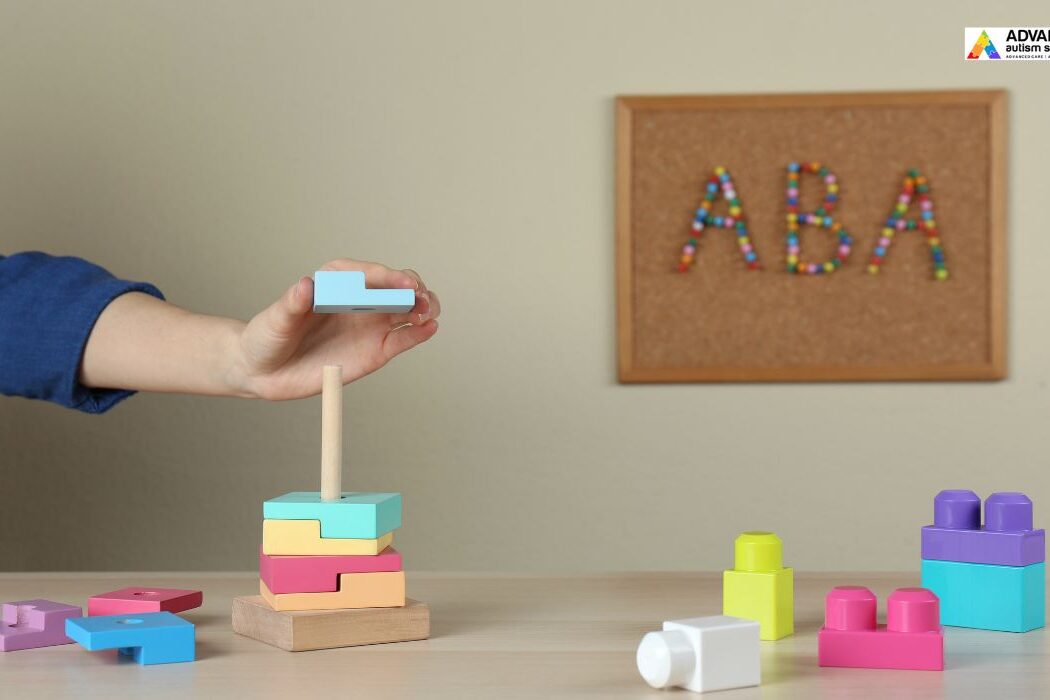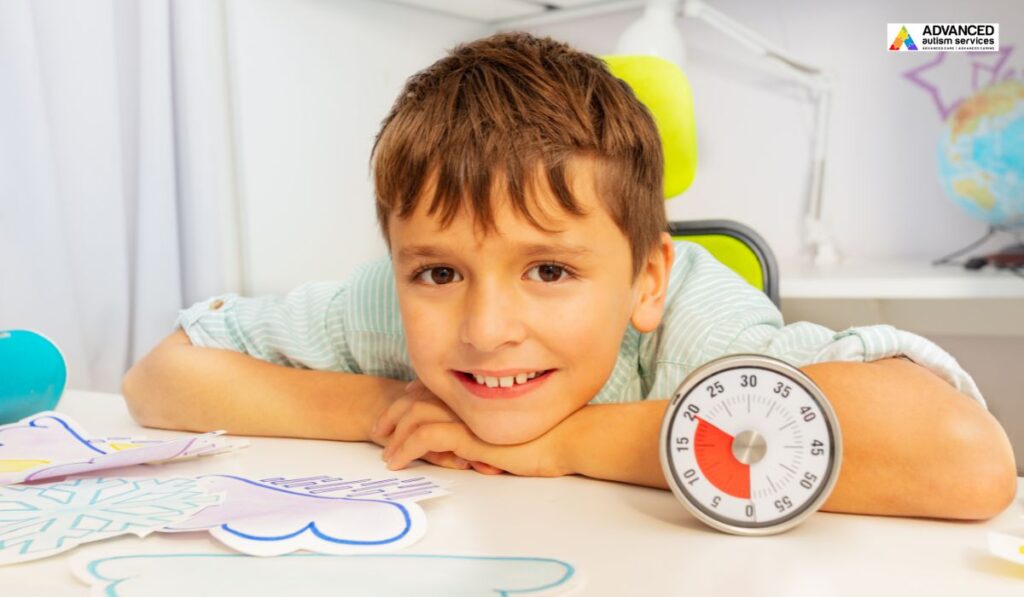In the realm of autism interventions, particularly in Bethesda, Applied Behavior Analysis (ABA) therapy has emerged as a valuable tool in addressing the unique challenges faced by individuals with autism spectrum disorder (ASD). ABA therapy focuses on improving socially significant behaviors through systematic interventions. In this article, we explore the positive impact of incorporating music into ABA therapy sessions, shedding light on the potential benefits and practical strategies for implementation in the context of ABA therapy in Bethesda.
Understanding Autism
Autism, characterized by difficulties in communication, social interaction, and repetitive behaviors, poses distinctive challenges for those diagnosed with the condition. It is crucial to comprehend the intricacies of autism to tailor interventions effectively.
ABA Therapy Explained
Applied Behavior Analysis (ABA) is a therapeutic approach rooted in the science of learning and behavior. ABA therapy aims to increase desirable behaviors while decreasing those that may be harmful or interfere with learning. Through structured sessions, individuals with autism can develop essential life skills and adaptive behaviors.
Music Therapy in ABA
Music therapy, a creative and expressive form of intervention, has gained recognition for its positive impact on emotional and behavioral development. The inherent connection between music and behavior makes it a promising adjunct to ABA therapy.
Positive Impact of Music in ABA Therapy
Emotional Expression Through Music
Music provides a non-verbal outlet for emotional expression, particularly in the context of ABA therapy in Bethesda. Individuals with autism, often facing challenges in verbal communication, can use music as a means to convey emotions, fostering a deeper understanding of their inner world. This innovative approach within ABA therapy sessions in Bethesda embraces the potential of music to enhance emotional communication and create a more inclusive and effective therapeutic environment for individuals with autism spectrum disorder (ASD).
Enhancing Social Skills
Incorporating music into ABA sessions creates opportunities for social interaction. Group activities involving music promote collaboration, turn-taking, and shared enjoyment, fostering the development of essential social skills.
Implementing Music in ABA Sessions
Practical strategies for ABA therapists to integrate music into sessions include selecting appropriate music genres, incorporating musical instruments, and adapting interventions to accommodate diverse profiles.
Benefits of ABA Therapy with Music
Improved Communication Skills
Music acts as a bridge to enhance communication. ABA therapy, combined with music, facilitates language development and communication skills in individuals with autism.
Increased Engagement and Participation
The engaging nature of music captures attention and motivates active participation. ABA sessions enriched with music often result in increased engagement, making learning more enjoyable for individuals with autism.
Long-term Positive Effects on Behavior
Consistent exposure to music within the framework of ABA therapy contributes to long-term positive changes in behavior. This holistic approach addresses the root causes of behavioral challenges, fostering lasting improvements.
Challenges and Considerations
While the benefits are evident, ABA therapists must navigate challenges such as individual preferences, aversions, and the need for flexibility in incorporating music into personalized treatment plans.
Professional Perspectives
Insights from ABA therapists and music therapists underscore the collaborative nature of effective autism care. Professionals working together can tailor interventions to meet the diverse needs of individuals with autism.
Parental Involvement
Parents play a crucial role in supporting ABA therapy with music at home. Simple strategies like incorporating music into daily routines and creating musical environments contribute to the overall success of the intervention.
Future Possibilities
The evolving landscape of autism interventions presents exciting possibilities for the integration of technology and innovative approaches within ABA therapy with music. Ongoing research and developments hold promise for enhancing outcomes.
Personalization in ABA Therapy with Music
Tailoring Interventions to Individual Tastes
One of the remarkable aspects of incorporating music into ABA therapy is the ability to tailor interventions to individual tastes. Whether it’s calming classical melodies, energetic pop beats, or rhythmic jazz tunes, ABA therapists can customize sessions to match the preferences of each person undergoing therapy. This personalization not only enhances engagement but also fosters a sense of autonomy and choice, which is crucial for individuals with autism.
Building Emotional Connections through Music
Music has a unique ability to evoke emotions and memories. In ABA therapy, this emotional connection is harnessed to promote a deeper understanding of feelings and expressions. By selecting music that resonates with the individual, therapists can create a bridge for emotional communication, aiding in the development of empathy and self-awareness.
Overcoming Challenges: Strategies for Success
Addressing Non-Responsive Behavior
While music is a powerful tool, there may be instances of non-responsive behavior. ABA therapists employ strategies such as gradually introducing music, observing reactions, and adapting interventions based on real-time feedback. This dynamic approach ensures that the therapy remains attuned to the individual’s needs and comfort levels.
Collaboration with Caregivers
Incorporating music into ABA therapy extends beyond the therapy room. Collaboration with caregivers is vital for reinforcing interventions at home. ABA therapists guide parents in integrating music into daily activities, creating a seamless transition between therapy sessions and everyday life.
The Neurological Basis of Music in ABA Therapy
Unraveling the Brain-Music Connection
Neuroscientific research has delved into the intricate relationship between music and the brain. In the context of ABA therapy, understanding the neurological basis of music provides valuable insights into how specific interventions impact cognitive processes, emotional regulation, and perception. This knowledge informs targeted approaches for optimizing therapeutic outcomes.
Harnessing Rhythmic Entrainment
Rhythmic entrainment, the synchronization of movement with an external rhythm, is a powerful phenomenon in music therapy. In ABA sessions, therapists utilize rhythmic entrainment to enhance motor skills, coordination, and rhythmic patterns, contributing to overall physical and cognitive development.
ABA Therapy and Music: A Dynamic Duo
Synergistic Effects on Behavior Modification
The integration of music and ABA therapy creates a synergistic effect on behavior modification. The structured nature of ABA sessions, combined with the dynamic and rhythmic elements of music, results in a holistic approach to shaping positive behaviors. This dynamic duo provides individuals with autism with a multifaceted and enjoyable therapeutic experience.
Long-Term Effects on Quality of Life
Beyond immediate behavioral improvements, ABA therapy with music has lasting effects on the overall quality of life for individuals with autism. Enhanced social skills, improved communication, and a strengthened emotional foundation contribute to a more fulfilling and integrated life experience.
Conclusion
In conclusion, the fusion of ABA therapy and music in Bethesda promises a transformative journey for individuals with autism spectrum disorder (ASD). Applied Behavior Analysis (ABA) therapy, coupled with the expressive power of music, presents a holistic approach to address social, emotional, and challenges.
As we navigate challenges, foster collaboration with caregivers, and delve into the neurological basis of music, the synergistic effects create a powerful duo. Beyond behavioral improvements, ABA therapy with music shapes a fulfilling life experience for those with autism.
To embark on this transformative journey, contact us at Advanced Autism Services. Together, let’s explore the possibilities and enhance the lives of individuals with autism through the harmonious integration of ABA therapy and music.
FAQs
Is ABA therapy suitable for individuals of all ages with autism?
ABA therapy can be adapted for individuals of all ages, tailoring interventions to meet developmental stages and individual needs.
Can music therapy replace traditional ABA techniques entirely?
Music therapy complements traditional ABA techniques, adding a valuable layer of emotion and engagement, but it doesn’t replace them.
What role do parents play in ABA therapy with music at home?
Parents play a crucial role in supporting ABA therapy with music by incorporating simple strategies into daily routines and creating musical environments at home.
How can ABA therapists collaborate with caregivers for effective interventions?
ABA therapists collaborate with caregivers by guiding them on integrating music into daily activities, ensuring a seamless transition between therapy sessions and everyday life.
Are there specific genres of music that work best in ABA therapy?
The choice of music depends on individual preferences. ABA therapists often tailor music selections to match the unique needs and profiles of each individual.
What are some strategies for addressing non-responsive behavior during music therapy sessions?
ABA therapists employ strategies such as gradually introducing music, observing reactions, and adapting interventions based on real-time feedback to address non-responsive behavior.
How can technology be integrated into ABA therapy with music?
Technology offers innovative tools for personalized music interventions. Apps and virtual platforms can be utilized to enhance engagement and accessibility in ABA therapy with music.
Do ABA therapists take into account individual tastes when incorporating music into therapy sessions?
Yes, one of the remarkable aspects of incorporating music into ABA therapy is the ability to tailor interventions to individual tastes, enhancing engagement and autonomy.
What are the long-term effects of ABA therapy with music on the overall quality of life for individuals with autism?
ABA therapy with music has lasting effects on the overall quality of life, contributing to enhanced social skills, improved communication, and a strengthened emotional foundation.




